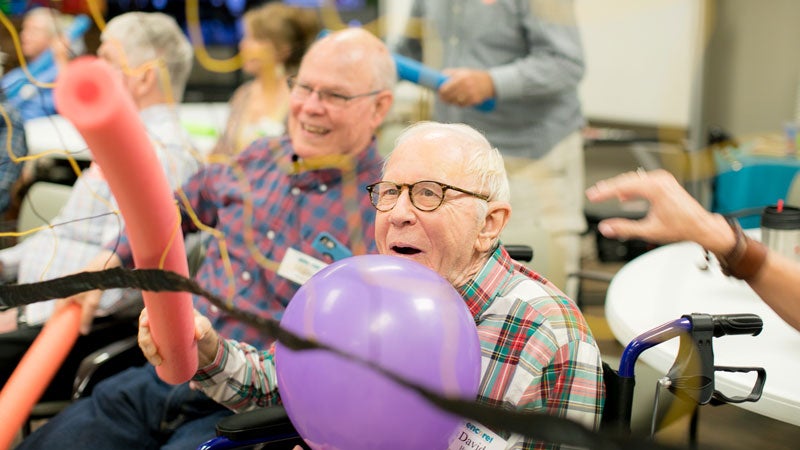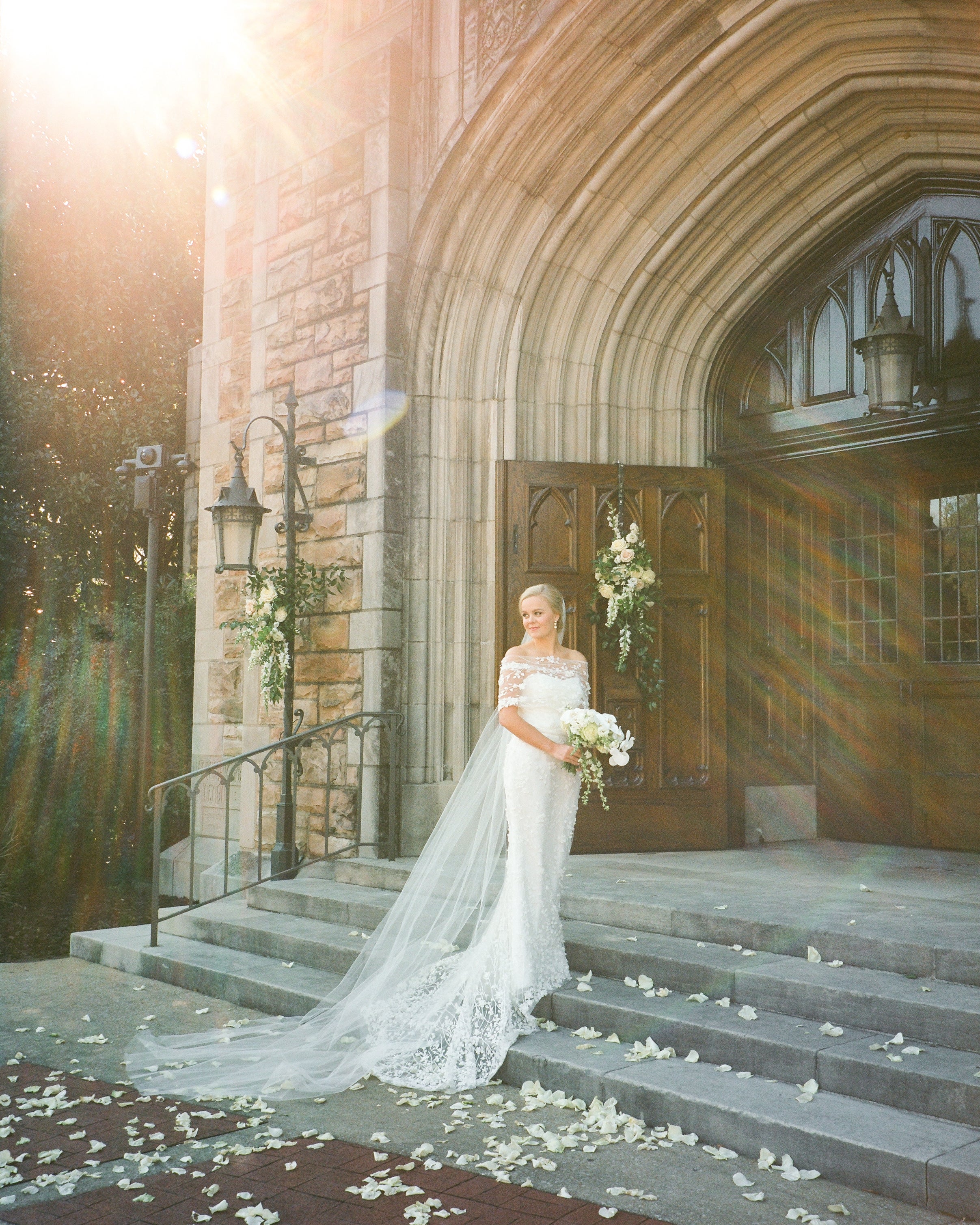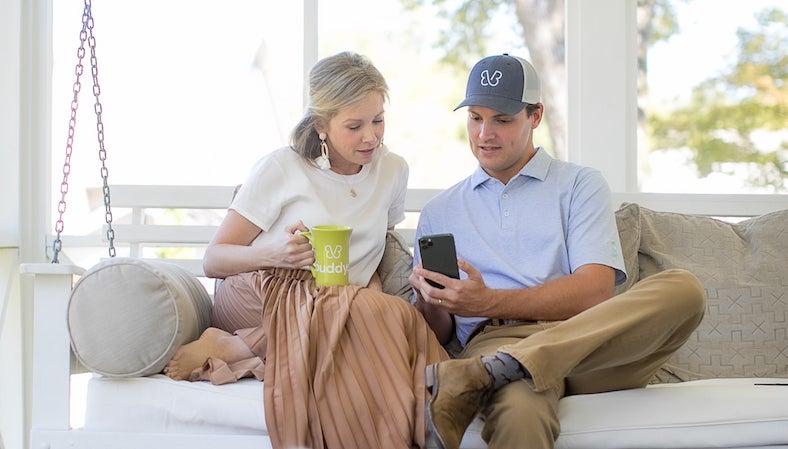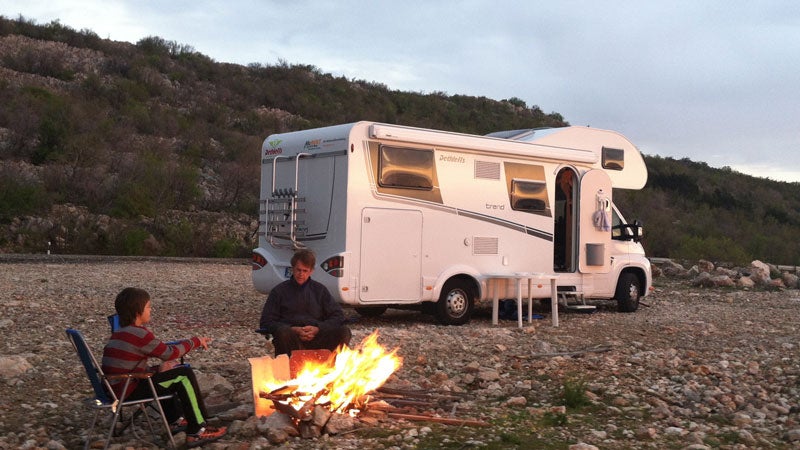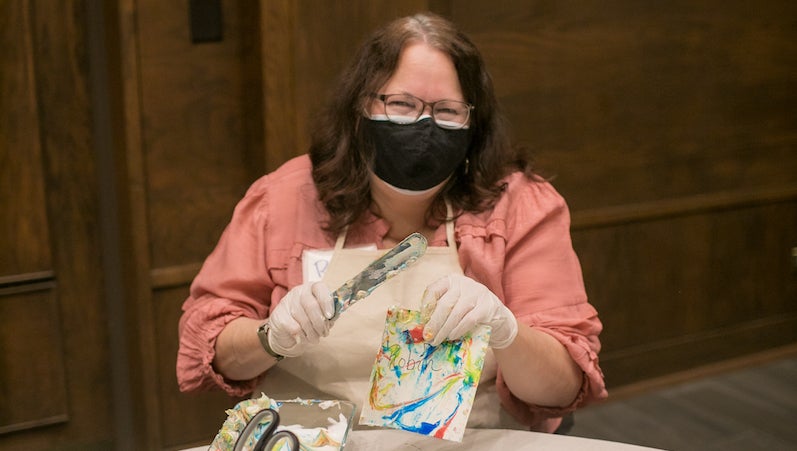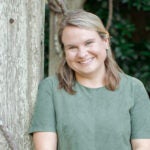Caring for someone with dementia is an exhausting and frequently thankless task. The hours are long, the frustrations are many, and the grief that results from watching a beloved parent, spouse or even your child become more and more debilitated by the disease can be overwhelming. Valerie Boyd knows this all too well. The director of senior adult ministries at Canterbury United Methodist Church watched the toll it took on her mother for 13 years as the primary caregiver for her grandmother, who was living with Alzheimer’s. The experience convinced Valerie that resources for caregivers and patients were desperately needed, and as a staff member in one of the largest United Methodist congregations in the state, she knew Canterbury could be the place to make it happen.
With that conviction and a lot of research and hard work, Canterbury opened the doors three years ago to Encore, an adult respite program for dementia patients and their caregivers. The program’s success has heightened awareness about dementia and created a template for a similar program in Mountain Brook at St. Luke’s Episcopal Church. With one in three senior adults now living with Alzheimer’s or other dementia and those numbers increasing rapidly, the need is already great and growing exponentially. 
In the Moment
When you walk in the door of the Encore program for adults, one of the first things you see is a sign that reads “Best Day Ever.” Only three small words, but they are powerfully important as the philosophy behind Encore. The mission of the staff and volunteers is to make sure each participant has the best day ever.
How do they do it? “We live in the moment,” Valerie explains. “It’s a place where our participants can truly be themselves.” Patti Williams, program director for Encore, tells of a time when one of the regular participants arrived for the day in a pair of his wife’s pants. “We roll with it,” she says with a laugh. “This is a no-judgement zone.” That fun, relaxed attitude was evident the day I visited. “Celebration” by Kool and the Gang played while the participants started an intense game of balloon volleyball. One participant grinned and warned me before they began: “You’re going to think we’re nuts!”
Encore participants enjoy mini-lectures, exercise, brain-stimulating games, music and meals. On Thursdays care partners can attend a support group for encouragement and education about dealing with the effects of dementia on their loved ones. Patti speaks of the need to eliminate the stigma of memory loss in older adults. Many times, she says, it’s the family members who have the hardest time accepting the diagnosis, hence the need for a support group and more community education. During this season of care, many family members tend to further isolate their loved one because they are worried about protecting them. “One thing we hear a lot is, ‘Oh, he would be so embarrassed by his behavior,’ and they feel like they are protecting them (by keeping them out of social situations),” Encore family and community educator Kristin Snell says. Valerie notes that the opposite is actually true: connections with others are vitally important to reduce feelings of depression and keep the dementia patient functioning at as high a level as possible for as long as possible.
Education for caregivers also focuses on strategies for managing and reducing conflicts. “If caregivers can learn to diffuse situations, many problems can be avoided,” Patti says. One strategy they teach is the acronym DARE: Don’t Argue, Reason, or Explain. “People with dementia can’t change. Family members have to change,” Valerie says firmly. This willingness of the caregiver to change their own behavior while understanding that the dementia patient cannot change theirs is vital for the mental health of both.
 Side by Side
Side by Side
Encore is just as important for those with dementia themselves too. In fact, the program boasts a 94 percent success rate for participation. “One of the things we hear from caregivers who are considering the program is that they don’t believe their family member will participate. ‘I can’t get him to put a puzzle together,’ (they say), or ‘She’ll never play those games.’ They are shocked when they see what we’re able to get out of them,” Patti says.
But it is very much a team effort. “Our volunteers are the key. We couldn’t do this without them,” Patti emphasizes. Volunteers are trained in how to communicate and be a friend to someone with memory loss. They also serve lunch, call Bingo, assist with art projects and help in any other way needed throughout the day. Perhaps their most important contribution, however, is simply interacting with the participants. This is where the stories happen, where you find out about the poetry book one of the participants wrote and illustrated, or where you learn what it was like to pick cotton on a North Alabama farm back in the day. The volunteers are trained to facilitate communication with the participants. For instance, direct questions are avoided because they can create confusion or anxiety when the participant can’t remember something specific.
“Everything we do is intentional,” says volunteer Barbara Rush. “We do everything we can to challenge the mind.” But the first commitment is always to respect the dignity of the participants, and it’s clear the volunteers take their responsibilities seriously. It’s a job they seem to love. “I look forward to this as much as anything I do all week,” says Rod Ramsay.
Who are the participants? They are former college professors and physicians. Artists and writers. Business owners and community leaders. People who’ve given their lives to make their world a better place. In a sense, Encore is also a respite for them, a place where they are not just accepted, but celebrated and encouraged as well.
At the end of each day, the participants, volunteers, staff, and a few caregivers who’ve wandered in to join the fun enjoy a rousing sing-a-long in choir. The final song is always “Side by Side,” the old classic made famous by Dean Martin. “Don’t know what’s coming tomorrow,” the participants sing. “Maybe it’s trouble and sorrow/ But we’ll travel the road, sharin’ our load, side by side.” It’s a poignant reminder and a perfect illustration of the mission of the staff and volunteers at Encore: to come alongside and help both adults with memory loss and their caregivers navigate a journey where sometimes the best medicine is simply a laugh, an understanding ear and a warm hug.
For more information on Encore, visit encorerespite.org or call the Encore office at 205-874-1525.
More Local Respite Ministries for Adults with Dementia
When her father was a participant in Encore, Susan Logan witnessed first-hand how important it was for his health and well-being, and so she took the idea to her own congregation, St. Luke’s Episcopal, to help staff the volunteers at Canterbury. Then when The Rev. Rich Webster learned about the program, he not only wanted to help Encore but also wanted to start a similar program at St Luke’s.
As a result, Founders Place adult respite ministry opened in April 2019 and borrows heavily on the ideas that have led Encore to be so successful. For more information, contact Executive Director Susanna Whitsett at swhitsett@saint-lukes.com or visit saint-lukes.com/founders-place1.
In addition to St. Luke’s, Independent Presbyterian Church offers a respite ministry called Recess (ipc-usa.org/serve/missions/recess.html), Collat Jewish Family Services holds a CARES (Caring for Adults through Respite, Enrichment and Socialization) program in Cahaba Heights (cjfsbham.org/cjfs-cares/), and Asbury United Methodist is set to start a similar program called Anchor Community Respite this fall.

